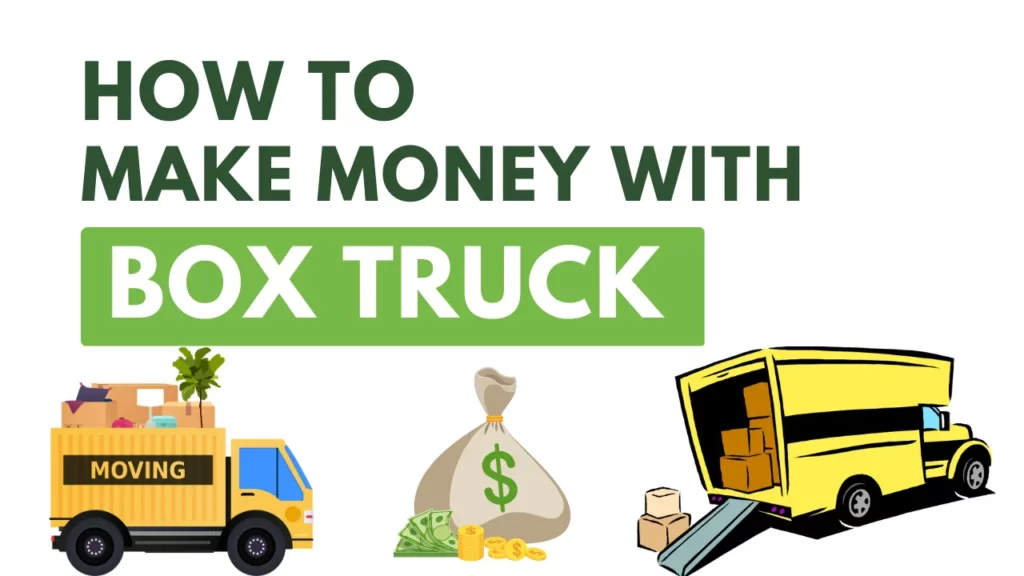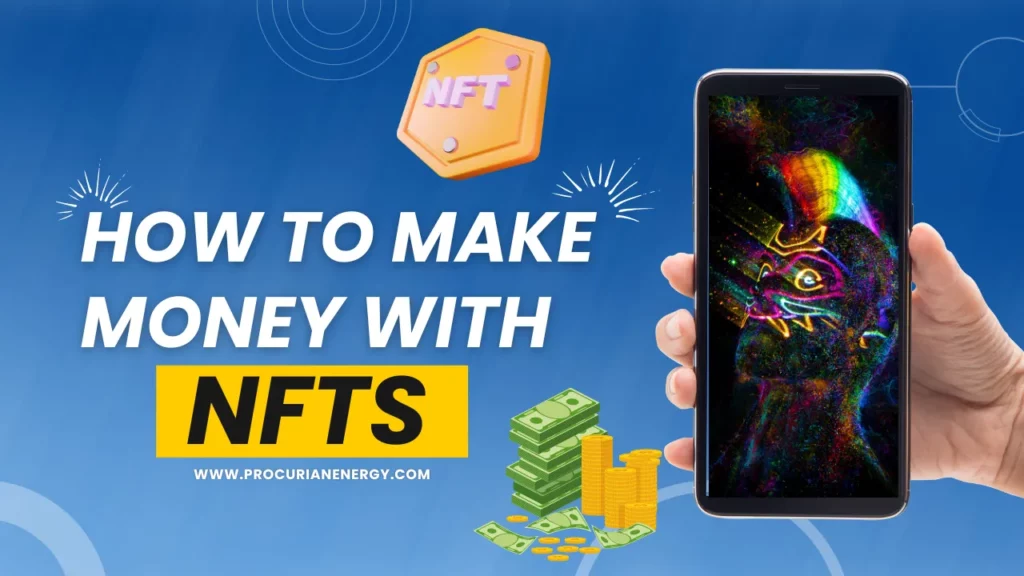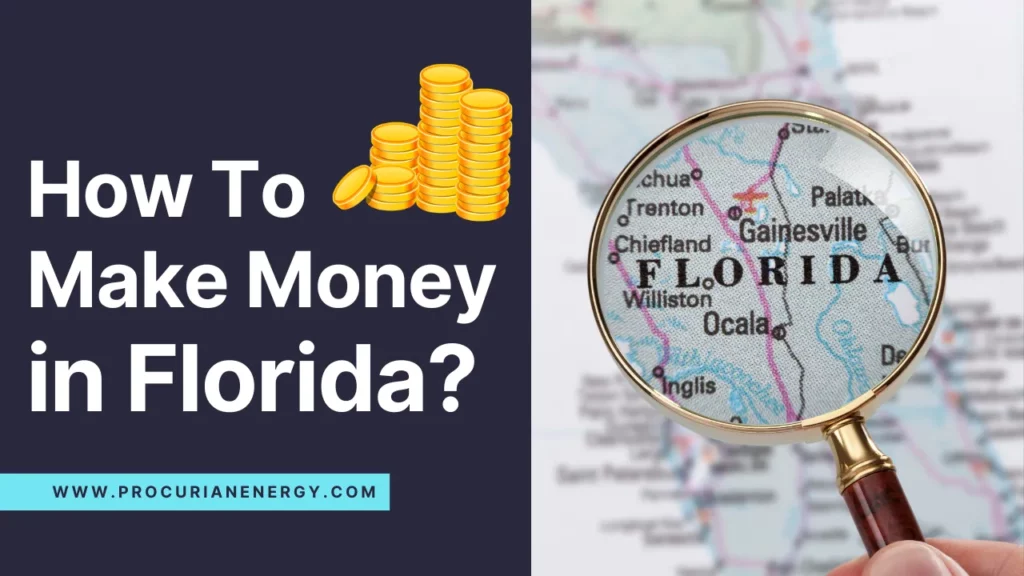Are you searching for how to make money with virtual real estate. In the current digital world, virtual real estate is increasing in value.
The possibilities for generating money with virtual assets have risen as more people across the world adopt virtual reality and the idea of the metaverse.
This blog article by ProCurian will go through every tip and strategy that might be useful for navigating the virtual real estate market and maximizing its potential for financial gain.
What is Virtual Real Estate?
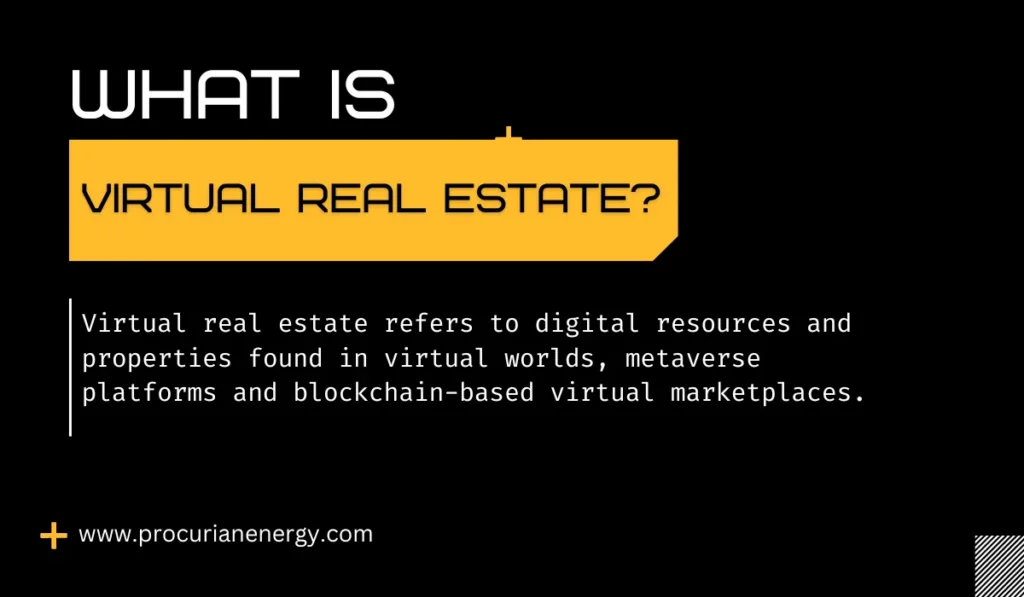
Virtual real estate refers to digital resources and properties found in virtual worlds, metaverse platforms and blockchain-based virtual marketplaces.
These assets might be anything from digital relics and gems to actual estate and buildings in the virtual world.
Users’ capacity to buy, trade and create virtual properties in virtual worlds like Second Life and Decentraland, metaverse gaming hubs like Roblox and Fortnite, and blockchain-based markets like CryptoVoxels and Decentraland is the foundation of the virtual real estate market.
The advantages of investing in virtual real estate include low entry fees, accessibility on a global scale and the possibility for large returns as these virtual areas gain greater notoriety.
How To Make Money From Virtual Real Estate?
In the digital world, these assets can include websites, domains, social media accounts, online businesses and more. Here are 11 best ways to make money from virtual real estate:
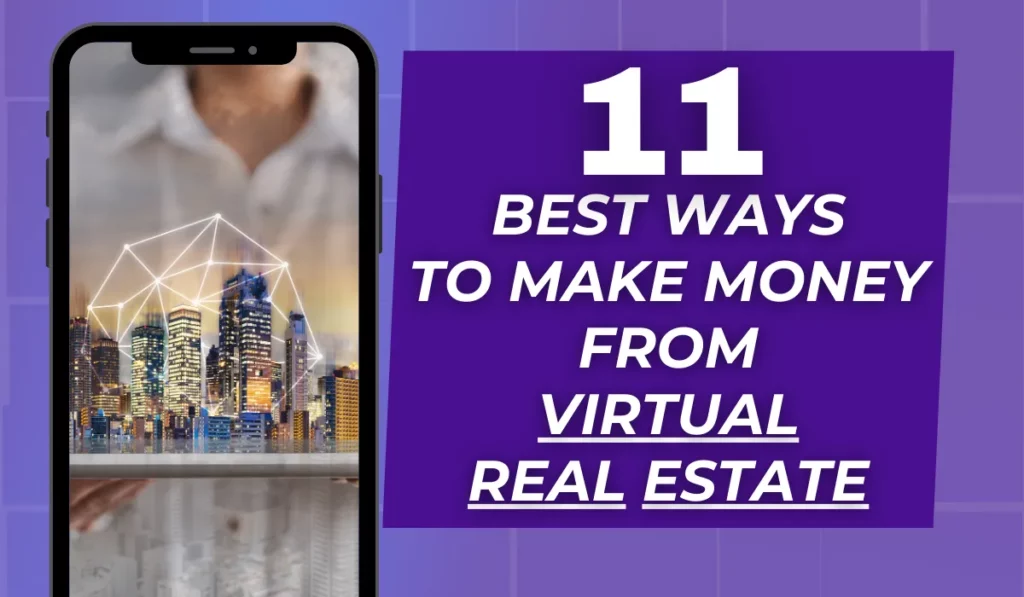
1) Website Flipping
- Purchase or create websites with potential for growth or those with existing traffic and revenue.
- Improve the website’s design, content and SEO to increase its value.
- Sell the website on online marketplaces like Flippa, Empire Flippers or private forums for a profit.
2) Domain Name Investing
- Purchase valuable domain names that are short, memorable and keyword-rich.
- Hold onto the domain names and wait for potential buyers willing to pay a premium for them.
- You can also park domain names with advertising to generate passive income while waiting for a buyer.
3) Affiliate Marketing
- Build a niche website or blog around a particular topic or product.
- Join affiliate programs of companies that offer products or services related to your niche.
- Promote affiliate products through your content and earn commissions on sales made through your referral links.
4) Ad Revenue and Monetization
- Create valuable content through blogs, videos or apps to attract a significant audience.
- Apply for ad networks like Google AdSense, Media.net or AdThrive to display ads on your platform.
- Generate revenue based on the number of ad impressions or clicks your content receives.
Also See: How to Make Money from Property Development?
5) Selling Digital Products
- Develop digital products like e-books, online courses, software, or graphics.
- Set up a website or use platforms like Udemy, Teachable or Gumroad to sell your products.
- Market your products through social media, email lists or collaborations with influencers.
6) Social Media Accounts
- Grow a substantial following on platforms like Instagram, Twitter or TikTok.
- Collaborate with brands for sponsored posts, product promotions or brand partnerships.
- Build engagement and maintain an active presence to attract potential opportunities.
7) Content Licensing
- Create high-quality multimedia content (photos, videos, music, illustrations).
- License your content to stock photo websites, video marketplaces or music libraries.
- Earn royalties whenever someone purchases the rights to use your content.
8) App Development and Monetization
- Develop mobile apps or games with a unique concept or high utility.
- Monetize your apps through in-app purchases, advertisements or subscriptions.
9) Membership Websites
- Create a membership site offering exclusive content, services or community access.
- Charge a recurring fee for access to premium features and benefits.
10) Virtual Real Estate in Virtual Worlds
- Invest in virtual real estate in online games or virtual worlds like Decentraland or Second Life.
- Develop and monetize virtual properties for virtual businesses, events or experiences.
11) Buy And Sell Crypto Or NFTs
- By strategically investing in promising cryptocurrencies or acquiring valuable NFTs related to virtual properties, Users can profit from the increasing demand and scarcity of these assets.
- Success in this field requires a solid understanding of blockchain technology and the digital asset ecosystem.
Also See: How to Make Money in Commercial Real Estate?
How to invest in digital real estate?
To invest in digital real estate, follow these steps:
Step 1: Researching Virtual Real Estate Platforms
Begin by exploring various virtual real estate platforms to identify the ones that align with your investment goals. Each platform offers unique features and assets, so understanding their dynamics is crucial before making any investments.
Step 2: Setting a Budget and Allocating Funds
Decide how much you’re willing to invest in virtual real estate and allocate your funds wisely. Diversifying your investment across different platforms and assets can reduce risks.
Step 3: Creating a Strategy and Setting Goals
Determine your investment strategy, whether it’s short-term flipping, long-term holding or active development. Set clear goals and milestones to track your progress.
Step 4: Understanding the Risks Involved
Like any investment, virtual real estate carries risks. Be aware of market volatility, changing platform policies and potential security concerns.
Digital real estate investing for beginners
Here are some essential tips for beginners looking to venture into this exciting domain:
- Research and Educate – Begin by researching the different types of digital real estate, such as domain names, websites, social media accounts, and virtual assets like NFTs. Educate yourself on the market trends, potential risks, and opportunities.
- Start Small – For beginners, it’s wise to start with a modest budget and explore low-risk options. Consider purchasing a domain name or a small website/blog to get familiar with the process.
- Niche Selection – Focus on a specific niche that aligns with your interests and expertise. Niche digital properties often have a more targeted audience and higher potential for growth.
- Content and SEO – If investing in websites/blogs, quality content and search engine optimization (SEO) are crucial for attracting organic traffic and increasing the property’s value.
- Diversification – Spread your investments across different types of digital real estate to reduce risks and maximize potential returns.
- Monetization Strategies – Understand various monetization methods such as advertising, affiliate marketing or selling products/services to generate income from your digital properties.
- Stay Updated – The digital landscape evolves rapidly, so stay informed about the latest trends, technologies and platforms to remain competitive in the market.
- Network and Collaborate – Engage with the digital real estate community, attend webinars, join forums, and seek advice from experienced investors.
- Be Patient – Digital real estate investing requires time and effort to yield significant results. Be patient and persistent in building and growing your digital assets.
- Secure Your Investments – Implement security measures to protect your digital properties from potential threats, such as hacking or domain theft.
Is digital real estate legit?
Yes, digital real estate can be legit.
Digital real estate refers to virtual properties like domain names, websites and social media accounts, that hold value and can be bought, sold or rented.
Just like physical real estate, digital assets can generate income through advertising, affiliate marketing or selling products and services.
Also See: How To Make Money on Amazon Without Selling?
Why are people buying virtual property?
The demand for virtual real estate has increased as a result of the popularity of virtual worlds, games and metaverses.
These digital properties provide unique opportunities for experiences, interpersonal interaction and creativity.
People invest in virtual property for various reasons including:
- speculation on its future value,
- personal enjoyment and expression,
- business ventures,
- as a way to participate in emerging digital economies.
Tips for Success in Virtual Real Estate
Follow these tips for success in virtual real estate:
- Stay Updated with Market Trends and Developments – Keep yourself informed about the latest trends, updates and innovations in the virtual real estate market to make informed decisions.
- Network with Virtual Real Estate Enthusiasts and Professionals – Engage with virtual real estate communities, attend events and network with like-minded individuals to gain insights and knowledge.
- Diversify Your Virtual Real Estate Portfolio – Avoid putting all your investments into one platform or type of virtual property. Diversification spreads risks and ensures a balanced investment approach.
- Be Patient and Avoid Hasty Decisions- Virtual real estate investment, like any investment, requires patience. Avoid making hasty decisions and take the time to evaluate opportunities thoroughly.
FAQs related to Virtual Real Estate
What is virtual real estate?
Digital properties and assets existing in virtual worlds or marketplaces.
How do I start investing in virtual real estate?
Research platforms, set a budget and select a strategy aligned with your goals.
What types of virtual properties can I invest in?
Virtual land, buildings, NFTs and websites are common options.
How can I profit from virtual land?
Buy and hold land in high-demand locations for potential appreciation and resale.
How can I monetize virtual buildings and spaces?
Lease or rent them out, host events or offer attractions to attract visitors.
Are there risks involved in virtual real estate?
Yes, like any investment, it carries risks such as market volatility and security concerns.
How do I identify undervalued virtual properties?
Analyze market trends, demand and potential for development.
Can I earn from the metaverse?
Yes, investing in metaverse-focused platforms and assets presents opportunities for growth.
What are the legal considerations in virtual real estate?
Be mindful of intellectual property rights, tax implications and ethical practices.
Can I invest with a small budget?
Yes, start small and gradually expand your virtual real estate portfolio.
What strategies are best for beginners?
Start with low-risk investments like domain names or small websites/blogs.
Is virtual real estate different from physical real estate?
Yes, it involves digital properties and online platforms instead of physical locations.
How do I protect my virtual assets?
Implement security measures to safeguard against potential threats like hacking.
Can I buy virtual properties with traditional currency?
Most platforms use cryptocurrencies like Ethereum (ETH) for transactions.
Can I make a quick profit from virtual real estate?
Some strategies like flipping can yield quicker returns, but patience is essential.
Final Thoughts
With virtual real estate, there is a unique opportunity to benefit from the digital revolution.
Y ou can unlock the potential for significant financial gains by having a firm understanding of the market, employing wise investing strategies and being current with environmental changes.
Adopting the world of virtual real estate is a step towards the future of digital riches.
Happy investing!
